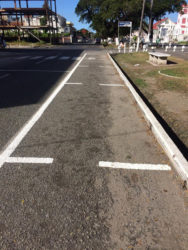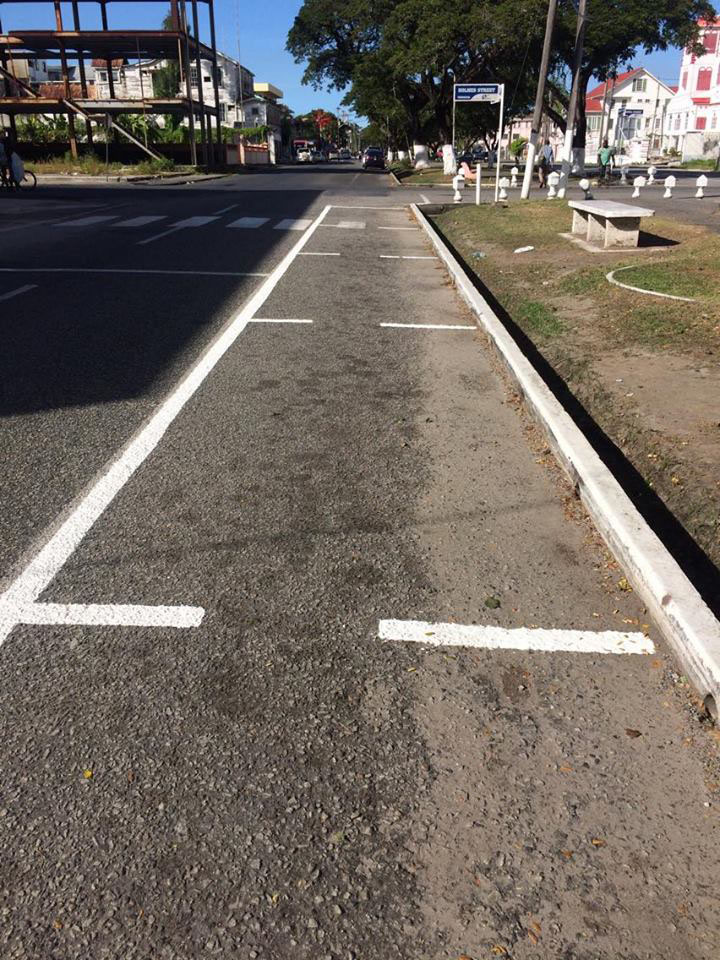National Parking System/Smart City Solutions (NPS/SCS) has begun preparatory works to install an estimated 400 parking meters within the central business district of Georgetown.
Work began yesterday morning when workers from the company earmarked parking spaces on Main Street in the vicinity of Courts.
No date has officially been announced when the parking meters would come into play but according to information reaching Stabroek News, SCS plans to begin installation of the first phase of 3,400 spaces in November.

NPS/SCS will be investing US$10 Million for a full scale roll out of 400 state-of-the-art multi-space parking meters made by Parkeon Meters.
These meters will include Strada Evolution parking meters and Strada Bank Note Acceptor parking meters manufactured by Parkeon, the leading global manufacturer of parking meters and related analytical and monitoring platforms.
The meters will be installed in the city’s main commercial district from Water to Camp streets and from Quamina Street to Hadfield Street.
Stabroek News learnt the company went ahead with acquiring the equipment after several amendments made to the contract were presented to the full council on August 29.
The amendments include the reduction of the length of the contract to 20 years as opposed to the 49 years in the original contract as well as a reduction of the parking tariff which was “up to $125” per 15-minute interval but has been reduced to $50 per 15 minutes.
The amendments were formally approved at a council statutory meeting on September 26, 2016 after which Town Clerk Royston King signed the contract on behalf of the city.
The parking meter deal was greeted with great controversy by the public since it was not tendered. After criticism, President David Granger ordered a review be done to ascertain if there were any irregularities.
Two reviews were done on the deal: one by the Ministry of Finance and the other by the Attorney-General’s Chambers. The Ministry of Finance’s review scathingly criticized the deal saying that government procurement rules may have been transgressed while the AG’s review said the terms highly favour the contractor.
The reviews however did not find the contract to be illegal and central government recommended only that the city renegotiate the contract after seeking the advice of an accountant.

